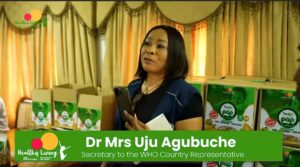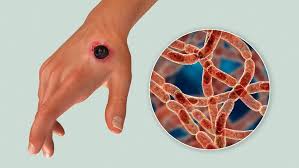Diphtheria: Many children remain unvaccinated –NPHCDA

The National Primary Healthcare Development Agency of Nigeria (NPHCDA) said on Monday in Abuja that a significant number of children remained unvaccinated therefore are at risk of contracting diphtheria.
The Executive Director, NPHCDA. Dr Faisal Shuaib, said this at a joint news conference on Diphtheria Outbreak Response organised by the NPHCDA and World Health Organisation (WHO).
Shuaib said that some children were partially vaccinated thereby compromising the country’s goal of achieving population immunity.
He said that suboptimal vaccination coverage has been the main factor contributing to the Diphtheria outbreaks, with the most affected age group being those between 2-14 years.
He said NPHCDA, in collaboration with the Federal Ministry of Health, Nigeria Centre for Disease Control and Prevention (NCDC), tates governments, and donor partners, were mobilising necessary resources to mount effective response to the outbreak.
“A comprehensive response plan has been activated to detect cases early, contain the spread, and prevent further transmission through a multi-phased strategy.
“To facilitate our immediate response plan, we are leveraging surveillance data from NCDC and direct information from the states to ensure effective planning and resource deployment.
“The agency is working closely with partners to ensure adequate supplies of Tetanus Td (tetanus and diphtheria) for children 4 to 14 years and Pentavalent vaccines for children under 4 years,” he said.
According to him, the agency was collaborating with the affected health state teams and other stakeholders to conduct intensified mass vaccinations for identified at-risk populations.
“Additionally, we are conducting awareness campaigns to educate the public about the disease, its symptoms, and preventive measures”, he said.
He said that the response to the diphtheria outbreak would be carried out in two phases.
“Phase 1, the immediate response, will encompass 25 Local Government Areas (LGAs) across four States: Bauchi, Katsina, Yobe, and Kaduna.
“This phase is scheduled to begin on Aug. 7, and will continue until August 11, 2023.
“Phase 2 will cover outbreak response in 171 LGA. Six states (Kano, Katsina, FCT, Yobe, Kaduna, and Bauchi) will have a state-wide outbreak response.
“There will be targeted outbreak responses in LGAs across eight States: Jigawa (8 LGAs), Borno (4 LGAs), Osun (4 LGAs), Lagos (3 LGAs), Zamfara (3 LGAs), Gombe (3 LGAs), Plateau (1 LGA), and Nasarawa (1 LGA).
“This phase is planned to be conducted in three rounds. The first round will commence on Aug. 21; followed by the second (2nd) and third (3rd) rounds.
He said the rounds have been tentatively scheduled to hold on Sep. 18 and Oct. 16, , respectively, adding that each of the rounds will last five days.
“Parents and caregivers are therefore urged to take their children, from birth to 14 years, to nearby health facilities for vaccination,” he said.
He called on Nigerians to adhere embrace hygiene practices, saying it is crucial in preventing the spread of diphtheria.
The head, communications division, NCDC, Dr Yahya Disu, said that data drives the agency’s decision and response to any disease outbreak.
Disu said that the diphtheria outbreak continues to pose a huge threat to at-risk communities nationwide.
He said that this disease, which began in December 2022, is spreading to many states of the country.
The News Agency of Nigeria (NAN) reports that between May 2022 and July 2023 an estimated 2,455 suspected cases have been reported in 26 states.
As of July 27, 836 cases have been confirmed in 33 LGAs across seven states namely: Cross River, Kano, Katsina, Kaduna, Lagos, Osun, Yobe; and the FCT.
There have been 83 deaths from since the outbreak. (NAN)










I have now learnt that ages 2-14 are prone to having diphtheria.
This new health issue is very serious, and its so sad, it affect more to children from 2-14 years.